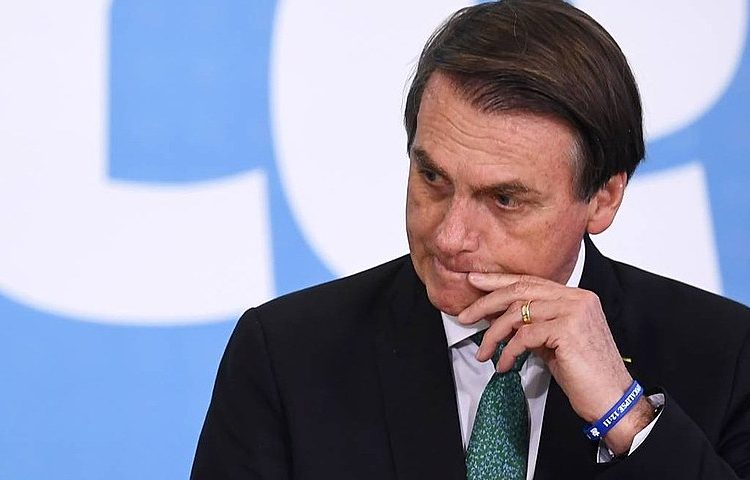In January, Jair Bolsonaro will become the third Brazilian President to be honoured as chief guest at the Republic Day parade, the first two being Fernando Henrique Cardoso (1996) and Luiz Inácio Lula da Silva (2004). Both Mr. Cardoso and Mr. Lula were respected figures on the world stage and neither came to New Delhi bathed in controversy. On the other hand, Mr. Bolsonaro’s popularity rating within Brazil has fallen sharply, while his standing amongst world leaders is woeful. A culture of toxicity pervades Mr. Bolsonaro’s coalition, whose views on women and minorities, and promises and policies on environment and culture, tear apart any shred of consensus in Brazil.
On his first day in office, Mr. Bolsonaro struck at the autonomy of Brazil’s indigenous communities and ordered the Human Rights Ministry to disregard the complaints of the LGBTQ population. These orders fulfilled campaign pledges to two of Mr. Bolsonaro’s three main constituencies: first, the agri-business bloc (colloquially called ‘Beef’), which has long wanted to farm the Amazon, large parts of which are under the control of the indigenous people; second, the conservative evangelical bloc (the ‘Bible’), which has never come to terms with the reality of the LGBTQ community. The third bloc, ‘Bullet’, comprises the country’s militaristic sections.
Increase in poverty, hunger and hate
Not long into his tenure, Mr. Bolsonaro said that talk of poverty in Brazil is a “big lie”. But this goes against the Brazilian government’s own data, which suggest that 55 million Brazilians (out of a population of 209 million) live in poverty. United Nations data show that hunger in Brazil, which had been largely eradicated by the Lula administration’s Fome Zero (Zero Hunger) programme, is now back in the country. The government does not admit to reality, denying its own data and so it has not formulated a credible policy to tackle pressing problems — hunger, landlessness, and desolation — of a large section of the population.
All this is deeply familiar. Over the past decade, in different tempos, parties of the far right have come to power across the world. Most of them favour a form of right-wing nationalism steeped in xenophobia, hatred for minorities, and pickled in ancient quarrels that do not help tackle the problems of the present. These are political formations that pretend to turn inward, but which in fact promote a globalisation that benefits a narrow set of people.
Mr. Bolsonaro withdrew Brazil from its commitments to the UN’s Global Compact for Safe, Orderly, and Regular Migration. This Compact is a liberal approach by the UN towards the general increase in migration, both internal and external; it asks countries to follow basic rules grounded in the UN Charter. What does it mean for a country like Brazil to no longer be in this Compact? It means that Brazil is under no obligation to treat migrants with decency but, more than anything, it sends a signal to believers of the far-right ideology inside Brazil that the dignity of migrants no longer needs to be recognised. Belligerence is the outcome of such a withdrawal. Mr. Bolsonaro’s withdrawal from this Charter is a mirror of U.S. President Donald Trump’s desire to build a wall on the Rio Grande, and and also of India’s National Register of Citizens. It is this hatred for migrants, the presumed ‘outsiders’ and other vulnerable people, that evokes an acerbic form of nationalism. Hatred masquerades as patriotism. The size of national flags grows; the enthusiasm for the national anthem increases by decibels.
Pro-business agenda
Beneath the noise and dust of Mr. Bolsonaro’s outrageous statements is a methodical attempt by the far right to push through long-desired policies. It has been able to ‘reform’ social security provisions, and is seeking to undermine labour laws and increase working hours. Mr. Bolsonaro wants to auction off Brazil’s oil reserves, and is open to a setting up of U.S. military base in Alcantara. Further, fires in the Amazon have not stalled his wish to turn the forests over to the agri-business lobby. Most Brazilians are against this government, though they have not been able to effectively unite against it. Many still shake their heads in disbelief that Mr. Bolsonaro is their President.
During the last presidential election, it was clear that the polls favoured a return of Mr. Lula to the presidency. But a mysterious set of circumstances led to his arrest for corruption on the slenderest of evidence. It turns out now that the prosecutor and the judge could have colluded to fix up Mr. Lula’s arrest, which disoriented the left and provided Mr. Bolsonaro with a political opening. However, after 580 days in prison, Mr. Lula has now been released. He is now travelling across Brazil, addressing enormous crowds, building resistance against Mr. Bolsonaro’s toxic agenda.
* Vijay Prashad, Renata Porto Bugni, and André Cardoso work at the Tricontinental: Institute for Social Research.




